We have Waylon Jennings. He’s essentially a legend in country music because he sounded different and didn’t like to follow the rules.
He grew up in Littlefield, Texas, and getting famous was rough, but he performed well.
With songs like ‘Honky Tonk Heroes,’ he blew up–but that’s not all; he also played an enormous part in the Outlaw Country Movement. He’s been doing his music for many years and is still significant to singers. We’ll dive into Waylon Jennings’ life, tunes, and everything he did that we still discuss today. I wonder whether anyone else will ever come close to being that wonderful in music.
Early Life in Littlefield, Texas
Waylon Jennings grew up in Littlefield, Texas, a small town known for its love of country music. Since he was young, Jennings has been surrounded by this music: his parents were very large fans and would always play songs by country stars like Hank Williams and Jimmie Rodgers at home. Jennings had a knack for music and picked up the guitar pretty fast. He used to play at places around town, wowing people with his strong voice and meaningful songs. In Littlefield, he fell hard for country music and started to really want to make it his job.
Littlefield was a cozy little location where everyone knew each other, which greatly helped Jennings. He made his first band there, called The Texas Longhorns; they played music around the town at different spots. People liked them, and they got a large amount of fans. All this happened in Littlefield, a location with much music content. Where everyone sticks together: We have a question about whether Littlefield was important for Jennings’s becoming big in country music. It was extremely important because it’s where he started and improved a lot.
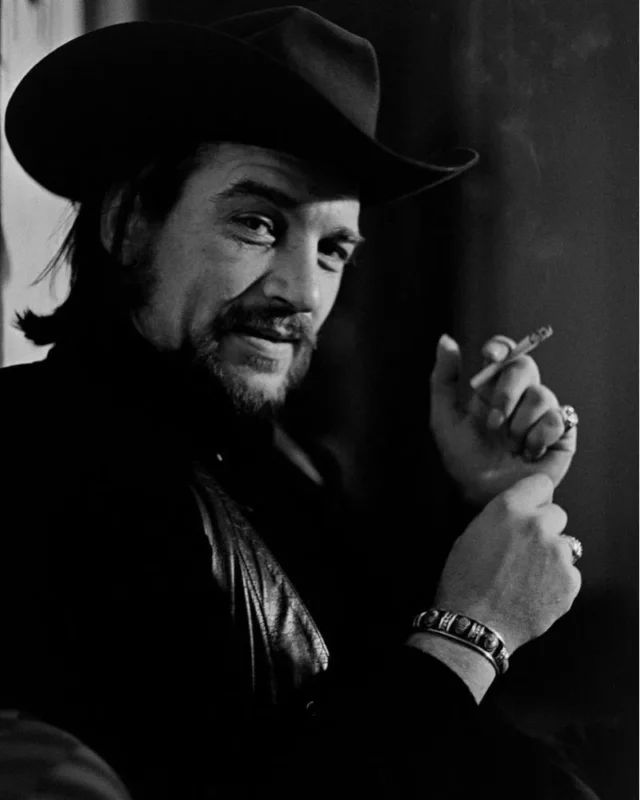
Musical Influences and Early Career
After getting first-rate at music and getting several fans in his hometown, Littlefield, Texas, Jennings started going all-in with his music career: he listened to all sorts of music his family played at home, from country and blues to gospel. He grew to love these musical styles: early on, he was extremely into big names like Hank Williams, Jimmie Rodgers, and Bob Wills; they taught him focused on old-fashioned country music. At first, Jennings played with some local bands, getting better and better and figuring out how the music world works; then, in the late 1950s, he moved out to Phoenix, Arizona. Over there, he worked as a DJ and played his tunes in clubs around town; that’s where he came up with his special mix of country and a dash of rock and roll.
In 1965, a marvelous person named Jennings teamed up with RCA Records.
He released his first album, ‘Folk-Country.’ People really enjoyed his tunes because he was independent, unlike anyone else; they discussed him and whether he was going to be of significant consequence.
But here’s where things got even wilder. Fast forward to 1973, and Jennings decides to work with a producer person, Chet Atkins. Together, they made ‘Honky Tonk Heroes.’ It was an approach-changer. Why, you ask? Because of an album, Jennings became known as the head of outlaw country music. He had a way of telling stories in his songs that clicked with people.
He wasn’t scared to say his thoughts, and his music broke the rules.
Why does anyone today still care about Jennings? We have our reasons. For a starter, he was extremely influential; thanks to kicking off his career with some wonderful moves and not being afraid to be himself, he left an enormous mark on country music.
Artists today from all sorts of musical backgrounds still look up to him; they love his style, his daring attitude in music, and, frankly, because he excelled.
Journey to Nashville and Record Deals
When Jennings hit Nashville and got a record contract, it was a large deal for his music career, pushing him into the national spotlight. In 1958, he went to Nashville, which is basically where country music lives, chasing after the big dreams he had. At first, he landed a gig playing bass for Buddy Holly, who was an enormous name in the country–but then, something awful happened in ’59 – Holly and two other singers died in a plane crash. Jennings didn’t let that horrible event stop him, though. He kept striving and eventually grabbed the leaders’ attention at record companies: by ’63, he locked in a major deal with RCA Victor, a move that kicked his career into high gear. His first couple of songs with RCA did alright–but it wasn’t until his 1966 album, “Leavin’ Town,” that he made a real splash. The main song from the album, “Anita, You’re Dreaming,” was his first to triumph in the country top ten charts: Jennings wasn’t only any singer, either – he had this special voice and an outlaw tenor that made other Nashville musicians take notice. Come the late 60s, Jennings was at the forefront of the outlaw country scene, which was focused on breaking away from the extremely clean-cut, manufactured sound of the time. With this edgy reputation, he worked with other major artists like Willie Nelson, Johnny Cash, and Kris Kristofferson.
Breakthrough Success With “Honky Tonk Heroes
Jennings did marvelous things earlier with other big-name artists: then, in 1973, he dropped his album ‘Honky Tonk Heroes’ — and boy, did things shake up! Before this, country music was extremely clean and polished–but Jennings changed that. He wanted something different, so he made the album all gritty-sounding, which we have as extremely marvelous because it was something no one else was doing. People enjoyed it because it didn’t sound perfect like the rest. ‘ Honky Tonk Heroes’ wasn’t only about whether it was going to be a hit; it flipped the switch and helped start an outlaw country.
The album’s title track, written by Billy Joe Shaver, became one of Jennings’ signature songs and a staple of his live performances. The song’s honest and rebellious lyrics, combined with Jennings’ distinctive voice and unique phrasing, struck a chord with listeners longing for an alternative to the slick, pop-oriented country music that dominated the airwaves. ‘Honky Tonk Heroes’ also included other notable tracks, such as ‘You Asked Me To’ and ‘Black Rose,’ showcasing Jennings’ songwriting skills and his ability to convey emotions with authenticity and sincerity. The album received critical acclaim and solidified Jennings’ reputation as a groundbreaking artist who was unafraid to challenge the conventions of the genre. With ‘Honky Tonk Heroes,’ Waylon Jennings not only achieved commercial success but also paved the way for a new era of country music. His honest and rebellious approach would continue to define his career and leave a lasting impact on the genre.
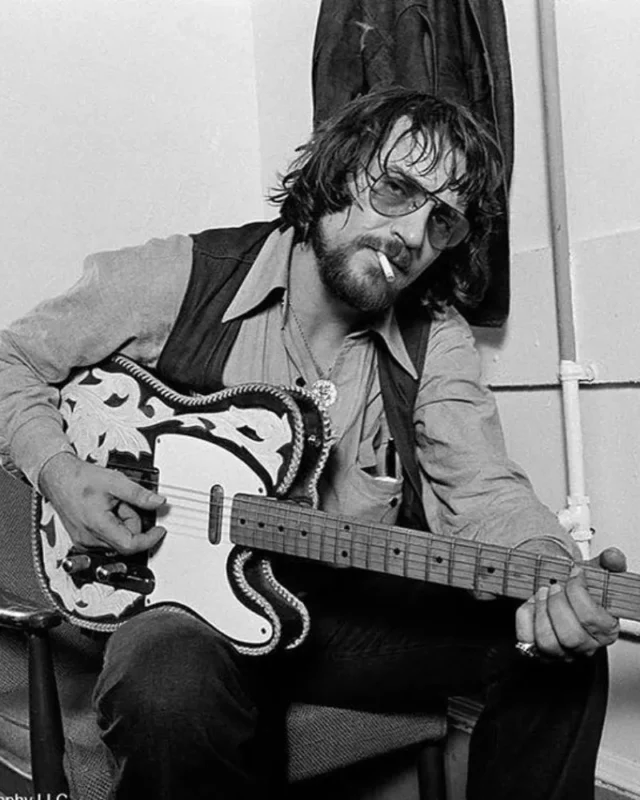
The Outlaw Country Movement
In the 70s, something wonderful happened in country music called the Outlaw Country Movement. This wasn’t only any music: we have regular country music–but these musicians thought it was too shiny and pop for their taste. People like Willie Nelson, Merle Haggard, and Waylon Jennings with his album ‘Honky Tonk Heroes’ were at the front of this: they thought it was time to change things. With the Outlaw Country Movement, they wanted the music to go back to its roots, more honest and raw, unlike what was over the radio. It was about whether they could get people to listen to country music that felt real again.
The Outlaw Country Movement went against the grain—it didn’t harmonize with the extremely polished sound and big-money tenor of regular country music. The musicians in this group were focused on staying true and a bit rough around the edges. They borrowed wonderful things from genres like rock, people, and the blues. Their songs weren’t only throwaways — they hit hard, getting into weighty topics like being broke, dealing with addictions, and trying to get by in life. Waylon Jennings was key in setting up this Outlaw harmonize with his album “Honky Tonk Heroes,” which came in the year 1973. The songs on that record were written by another artist known for his rebel style, Billy Joe Shaver: the album was raw, the words were honest, and Jennings’ one-of-a-kind singing brought it to life. “Honky Tonk Heroes” ended up being very large for the Outlaw Crowd because it sounded different than anything else out there. It built the stage for many other Outlaw artists to leave their stamp on music history.
Waylon Jennings Body Measurements And Personal Details
Popular As: Waylon Arnold Jennings
Occupation: music_department,actor,soundtrack
Age: 65 years old
Zodiac Sign: Gemini
Born: 15 June 1937
Birthday: 15 June
Birthplace: Littlefield, Texas, USA
Date of death: 13 February, 2002
Died Place: Chandler, Arizona, USA
Nationality: USA
Height: 6′ 0½” (1.84 m)
Weight: Not Available
Body Measurements: Not Available
Eye Color: Not Available
Hair Color: Not Available
Parents: Not Available
Wife: Jessi Colter (26 October 1969 – 13 February 2002) ( his death) ( 1 child), Barbara Rood (22 October 1967 – 1969) ( divorced), Lynne Jones (10 December 1962 – 1967) ( 1 child), Maxine Carroll Lawrence (24 December 1955 – 1962) ( divorced) ( 4 children)
Sibling: Not Available
Children: Not Available
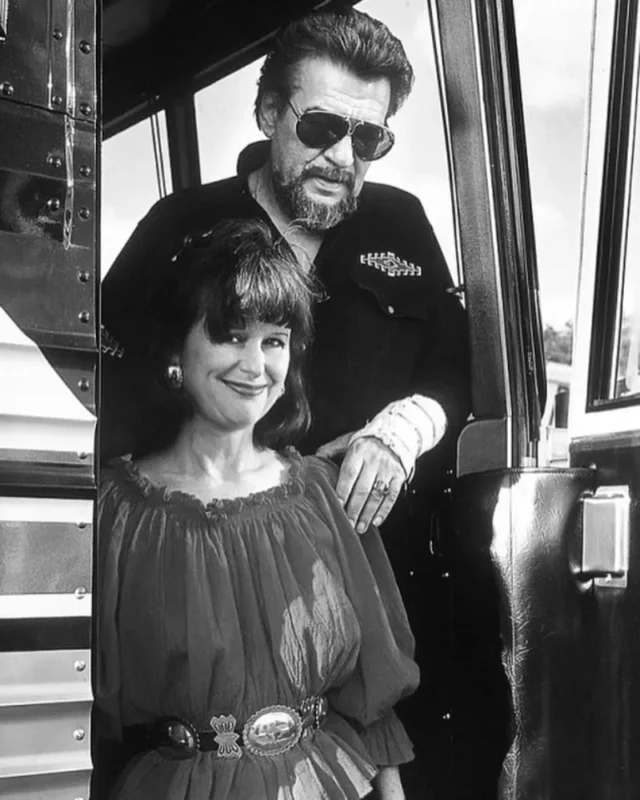
Collaboration With Willie Nelson and Waylon & Willie
Waylon Jennings and Willie Nelson teamed up to become the famous pair Waylon & Willie: they helped make the Outlaw Country style extremely popular.
They were both big in country music already, but when they started singing together, they started to excel. They kicked things off in the 1970s with their song, “Good Hearted Woman,” which everyone loved. It essentially stamped them as the go-to people for outlaw country music. They were both rebels and put out some spectacular albums as a duo. People acted for one called ‘Wanted! The Outlaws’ in 1976.
Waylon & Willie became extremely famous because they mixed old-time country tunes with rockin’ beats, and a large number of people enjoyed that; they sang a lot about being free, being independent, and how sometimes life gets tough, which was right in the Outlaw Country tenor; they weren’t only about the music, no: people thought of them as rebel heroes, living life on their terms. Since they made it big, other singers are trying to be a bit like them.
You can still hear how they changed country music; they got people wondering whether being a bit rebellious in your tunes is the way to go.
Struggles With Addiction and Personal Demons
Waylon Jennings’ life was beautiful because he kept fighting his scary monsters and bad habits. Everyone knew he had major battles with drugs, like cocaine and those extremely speedy amphetamines: we have to discuss whether he started getting into this mess because of all the absurd items, such as things in the Nashville music world in the 1960s; that location was notorious for getting people into trouble. Fame was tough on him, and to deal with all the pressure and the non-stop demands of being a music star, he leaned on drugs a lot.
Even though he was a very large name in country music and people loved him, keeping his life from spiraling was extremely hard because of his addiction.
Waylon Jennings’s issues affected his relationships. His rocky marriage with Jessi Colter was in shambles because he cheated a lot and had serious drug problems. His actions also made things pretty tense with his band and caused conflicts with others in the music world–but Jennings didn’t give up—he got help and worked hard to beat his addiction: around the late 80s, he checked into rehab, stuck it out, and got clean, staying off drugs until he passed away in 2002: Jennings conflict with his bad habits is like a warning about the tough things that can happen when you’re famous and successful–but even with all that hardship, he managed to leave a really strong mark on country music, and he’s remembered as one of the all-time greats.
Check out the body measurements of other celebrities.
| kyler quinn measurements |
| monica bellucci measurements |
| olga tanon measurements |
| aryna sabalenka measurements |
| kyle chandler measurements |
Iconic Hits and Chart-Topping Albums
Jennings did a mash-up of country and rock that clicked with people, making them groove to his tunes and pushing him into the spotlight.
We have this anthem, ‘Mammas Don’t Let Your Babies Grow Up to Be Cowboys,’ that he sang with Willie Nelson one time. It was a hit in 1978, climbing all the way to the top spot on the country chart.
It was marvelous and legendary, and that song? It remained, becoming a must-hear at his shows. People kept wondering about whether Jennings was a music legend. Creating banging hits and getting his albums to climb the charts proved he was. His extremely recognizable voice, jamming with those twangy guitars and rocky beats, got everyone hooked.
Another notable hit is ‘Luckenbach, Texas (Back to the Basics of Love),’ which topped the charts in 1977 and captured the essence of Jennings’ outlaw country sound. In addition to his hit singles, Jennings achieved great success with his albums. His 1976 release, ‘Wanted! The Outlaws,’ a collaboration with Willie Nelson, Jessi Colter, and Tompall Glaser, became the first country album to be certified platinum. It featured the hit single ‘Good Hearted Woman’ and solidified Jennings’ place as a leading figure in the outlaw country movement. Throughout his career, Jennings continued to produce chart-topping albums, including ‘Dreaming My Dreams’ (1975), ‘Ol’ Waylon’ (1977), and ‘I’ve Always Been Crazy’ (1978). These albums showcased his songwriting prowess and solidified his status as one of country music’s most influential artists. Jennings’ legacy as a hitmaker and chart-topper cannot be overstated. His iconic hits and chart-topping albums resonate with fans and serve as a testament to his incredible talent and enduring impact on the world of country music.
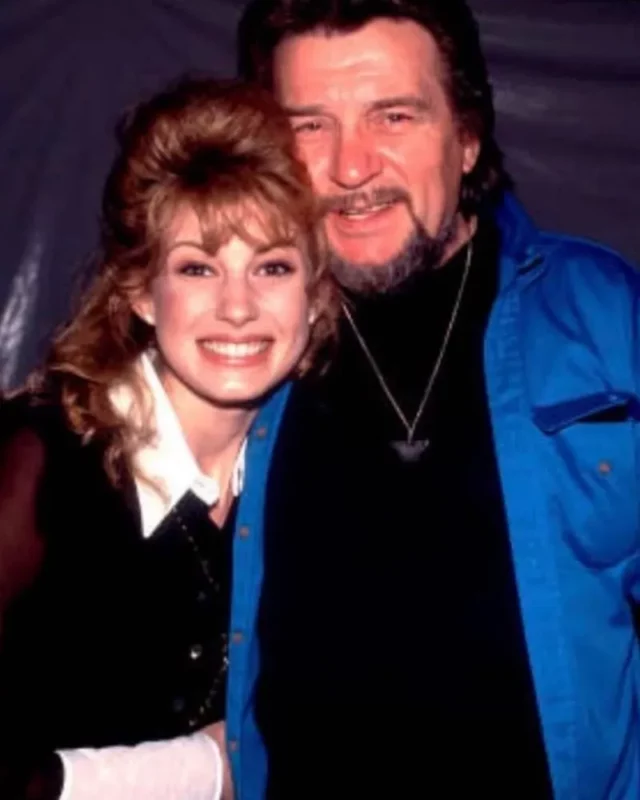
Waylon Jennings’ Acting Career
We have a person, Jennings. He wasn’t only about singing country tunes – he also triumphed in the acting world. Everyone knew him because of his amazing music–but then he tried something different: he got into acting! In 1978, he was in this movie ‘Renaldo and Clara’ that Bob Dylan directed: he played a tough gunfighter, ‘The Outlaw’. Everyone was into how real he made it feel. This was significant because it focused on whether he could show he was not only a singer but also could act, and man, did he crush it! Jennings showed everyone he wasn’t only a one-trick pony.
Jennings was also on TV shows, like The Dukes of Hazzard, where he played the ‘Balladeer.’ His unique and strong voice told the story on the show, and people noticed that, helping him prove he was not only good at music.
He acted not only on regular TV shows but also as a voice for cartoons and such. He was the character ‘Bobby Lee’ in the cartoon movie ‘The Fox and the Hound’ and even went on ‘The Muppet Show.’ He was more famous for his music than acting, but he still showed everyone that he was pretty good at entertaining people in different ways.
Jennings had a knack for grabbing the audience’s attention, whether with music or acting, and he was a real star in both scenes.
Personal Life and Relationships
Throughout his time, Waylon Jennings had several personal relationships that mattered in his life and helped shape who he was as a musician and famous person. One of the biggest deals in his life was his marriage to Jessi Colter, who also sang and wrote country music. They loved each other a lot, and you could tell when they performed together: they sang songs like ‘Suspicious Minds’ and ‘Storms Never Last,’ and everyone could see how connected they were. Jennings also had this tight bond with another country singer, Willie Nelson. They were like best friends and made music that wasn’t the usual country style, which made them stand out and become well-known. They did cool things together, like the album ‘Wanted! The Outlaws,’ which was an enormous hit. Even though they were famous, Jennings didn’t have the perfect life. He dealt with pretty hard issues like addiction and not being faithful, and those problems affected his relationships, even his marriage to Jessi, which didn’t last. But, even with those struggles, Jennings never stopped making great music that many people liked.
Legacy and Influence in Country Music
Waylon Jennings has had a significant impact on country music. He started a new “outlaw country” because he didn’t follow the usual rules. He had a special way of singing and wrote extremely real and deep songs that people really connected with. Many singers and bands who came after him inspired him.
Instead of doing what everyone in Nashville was doing, he made music that mattered to him: his album “Honky Tonk Heroes” from 1973 was a very large turning point in country music because of its rough sound and true-to-life songs. Jennings greatly changed country music, and people still look up to him.
Furthermore, Jennings’ collaborations with other notable artists such as Willie Nelson, Johnny Cash, and Kris Kristofferson showcased his ability to blend different styles and push the boundaries of traditional country music. These collaborations produced timeless hits and paved the way for the future of country music by bridging the gap between country and rock. Even after passing in 2002, Waylon Jennings’ influence continues to be felt in the genre. His music remains a staple on country radio, and his rebellious spirit inspires artists to challenge the status quo. Waylon Jennings’ legacy as an outlaw and his profound impact on country music will be remembered and celebrated forever.
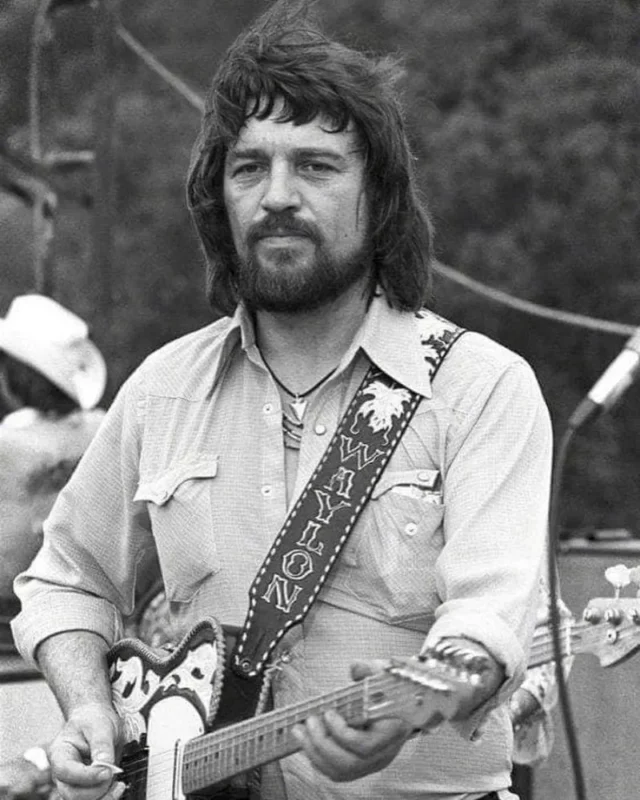
Remembering Waylon Jennings: His Lasting Impact
His lasting impact on country music is evident in the continued reverence and influence he holds even years after his passing. Waylon Jennings, a true legend of the genre, revolutionized country music with his unique blend of outlaw spirit and traditional sound. His music resonated with audiences and inspired countless artists, leaving an indelible mark on the genre. Jennings’ rebellious image and authentic storytelling spoke to a generation of fans searching for something different. He challenged the conventions of Nashville and paved the way for a new wave of country artists unafraid to push boundaries. His influence can be heard in the music of artists such as Eric Church, Chris Stapleton, and Miranda Lambert, who continue to carry on his legacy.
Besides changing how country music sounds, Waylon Jennings was great at writing songs: his hits, like ‘Good Hearted Woman’ and ‘Mammas Don’t Let Your Babies Grow Up to Be Cowboys,’ are so good that people keep listening to them all the time. Jennings could understand to the heart what it feels like to be a person in the words of his songs, which shows he was skilled at writing tunes; the fact that his country music still matters a lot today shows how brilliant and dedicated he was to making music.
People still love his songs, and many of today’s musicians were inspired by him. Even though he’s not here, his mark on country music will always be there.
Frequently Asked Questions
Did Waylon Jennings Have Any Siblings?
Waylon Jennings had three siblings. While he rose to fame as a country music legend, his family played an important role in his life. His siblings supported his musical career and were a constant source of inspiration.
What Was Waylon Jennings’ First Instrument?
We have Waylon Jennings, a person who started experimenting with the guitar as a child. He got extremely good at it over time: his upset guitar skills significantly influenced his music content.
How Did Waylon Jennings Meet Willie Nelson?
In the early 1960s, Waylon Jennings and Willie Nelson first met in Nashville. They were both trying to make it big in music and really enjoyed country tunes.
Because of that, they became peers; then, after being friends for a while, they started a marvelous thing known as the Outlaw Country Movement. People often wonder whether they knew how big it was going to be. All we know is that we have this amazing music today because they teamed up.
What Was Waylon Jennings’ Most Successful Album?
In 1976, there was “Wanted! The Outlaws.” It had songs from Waylon Jennings, Willie Nelson, Jessi Colter, and Tompall Glaser. It was a big deal because it was the first country music album to go platinum: we have zero doubts about whether it was Waylon Jennings’ best album ever.
Did Waylon Jennings Ever Win Any Awards for His Music?
Waylon Jennings won many awards for his songs. He even grabbed Grammy Awards for phenomena like Best Country Vocal and for singing together with others really well. We have to discuss whether he won the Most Impressive Award from the Academy of Country Music—yup, he got the Male Vocalist of the Year prize.
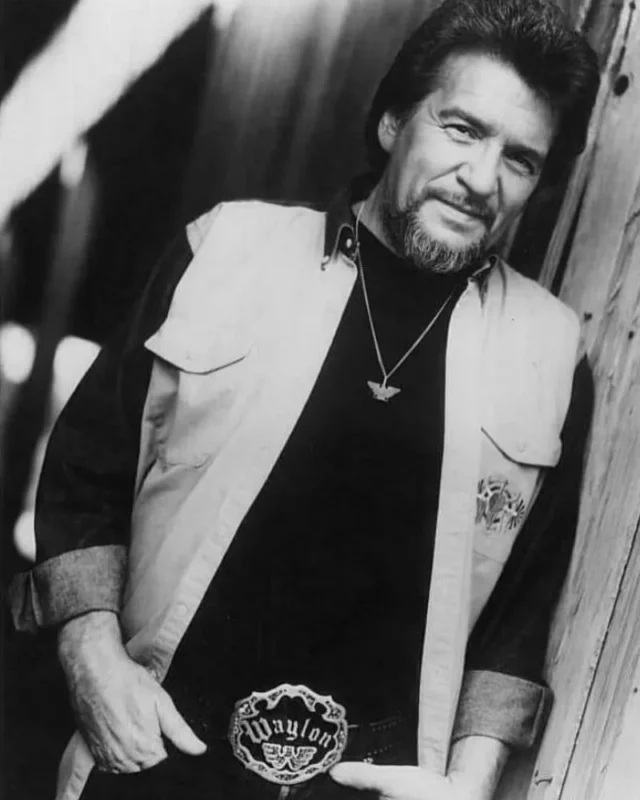
Conclusion
Let me tell you, Waylon Jennings was like an important deal in country music, okay? He broke the rules with his tunes and had this way of being independent. He was focused on whether he could make music his way, and He did with his extremely marvelous album ‘Honky Tonk Heroes’; that phenomenon was a game-changer: we have a person to thank for making country music super happy with this Outlaw tenor. And you know what? Even now, people keep remembering him. He left many memories and amazing songs that new country singers still admire. We have many amazing songs because Jennings made music like no one else: unforgettable, that’s definitive.
